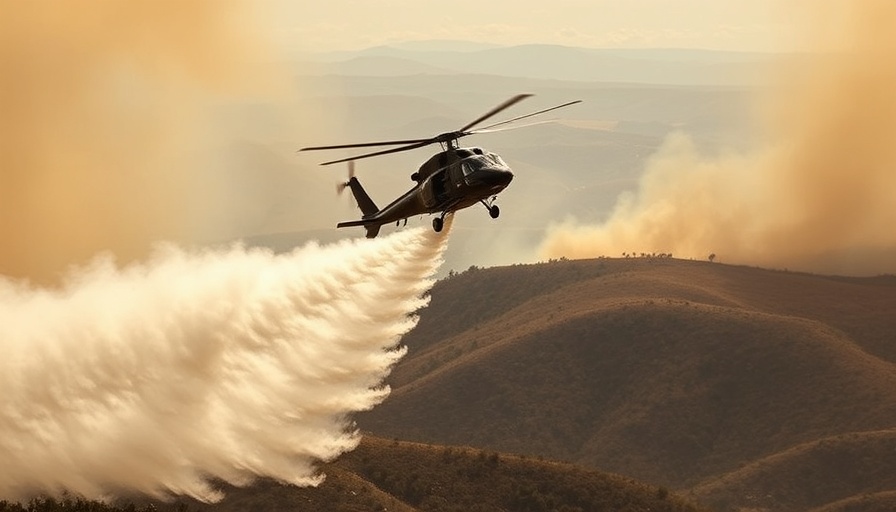
UK Wildfires: A Record-Breaking Year for 2025
The year 2025 has already etched its place in environmental history as the UK faces unprecedented wildfires, surpassing the previous annual record of land area burnt. Over 113 square miles have been consumed by flames, a staggering increase that leaves communities and ecosystems wondering about the looming implications. According to the Global Wildfire Information System (GWIS), early indicators suggest this trend may not just be an anomaly but rather a harbinger of more frequent and intense wildfires fueled by climate change.
The Impact of Weather on Wildfire Activity
Research indicates that in March 2025, the UK experienced an unusually dry and sunny period, creating conditions ripe for wildfires. Will Lang from the Met Office highlighted the link between the wet autumns and winters that nourished vegetation, which turned into kindling come spring. “This year, the dry spells followed by the lush growth from previous seasons may become more common as climate patterns shift,” Lang stated, illuminating how extreme weather events directly influence wildfire risks.
Environmental Consequences of Wildfires
While small wildfires can play a natural role in landscapes, the scale and frequency of current fires carry potential long-term risks. Guillermo Rein, a fire science professor, expressed concern over how intensive fires could impact wildlife habitats and soil health. “Some plants, such as heather, have adapted beautifully to fire; however, repeated high-intensity events can disrupt these adaptive strategies,” Rein remarked, prompting a deeper consideration of how ecosystems might falter under ongoing environmental stress.
Future Predictions: What Lies Ahead?
Looking ahead, scientists and policymakers alike are bracing for an increase in severe wildfire conditions in the UK as a direct effect of global heating. A report by the Met Office postulated that although wildfires often occur during the warmer months, the potential for devastating fires that threaten homes and communities will become a reality. “It’s not just about the number of wildfires; it’s about the intensity and the capacity to suppress them,” Rein indicated, urging for heightened preparedness strategies among local authorities.
Mitigation Strategies: How Communities Can Prepare
Communities can play a critical role in mitigating wildfire risks by enhancing preventive measures and fostering adaptive strategies. This includes creating fire breaks, clearing dead undergrowth, and investing in education about fire safety and ecological restoration practices. As wildfires shift from being occasional to becoming regular occurrences, integrating these strategies into local governance can not only protect landscapes but also safeguard human lives.
A Call for Awareness and Action
The scenario painted by the statistics and expert commentary surrounding the UK wildfires of 2025 presents a pressing need for awareness and proactive action. Citizens must become informed about wildfire risks and engage in community dialogue about resilience strategies. Understanding and addressing how climate change interplays with local environmental issues can help forge stronger, more prepared communities.
As we witness this alarming trend, it’s critical for everyone to ponder: What steps are you willing to take to safeguard our forests and homes from the encroaching threat of wildfires? Join the conversation and become part of the solution.
 Add Row
Add Row  Add
Add 



 Add Row
Add Row  Add
Add 

Write A Comment